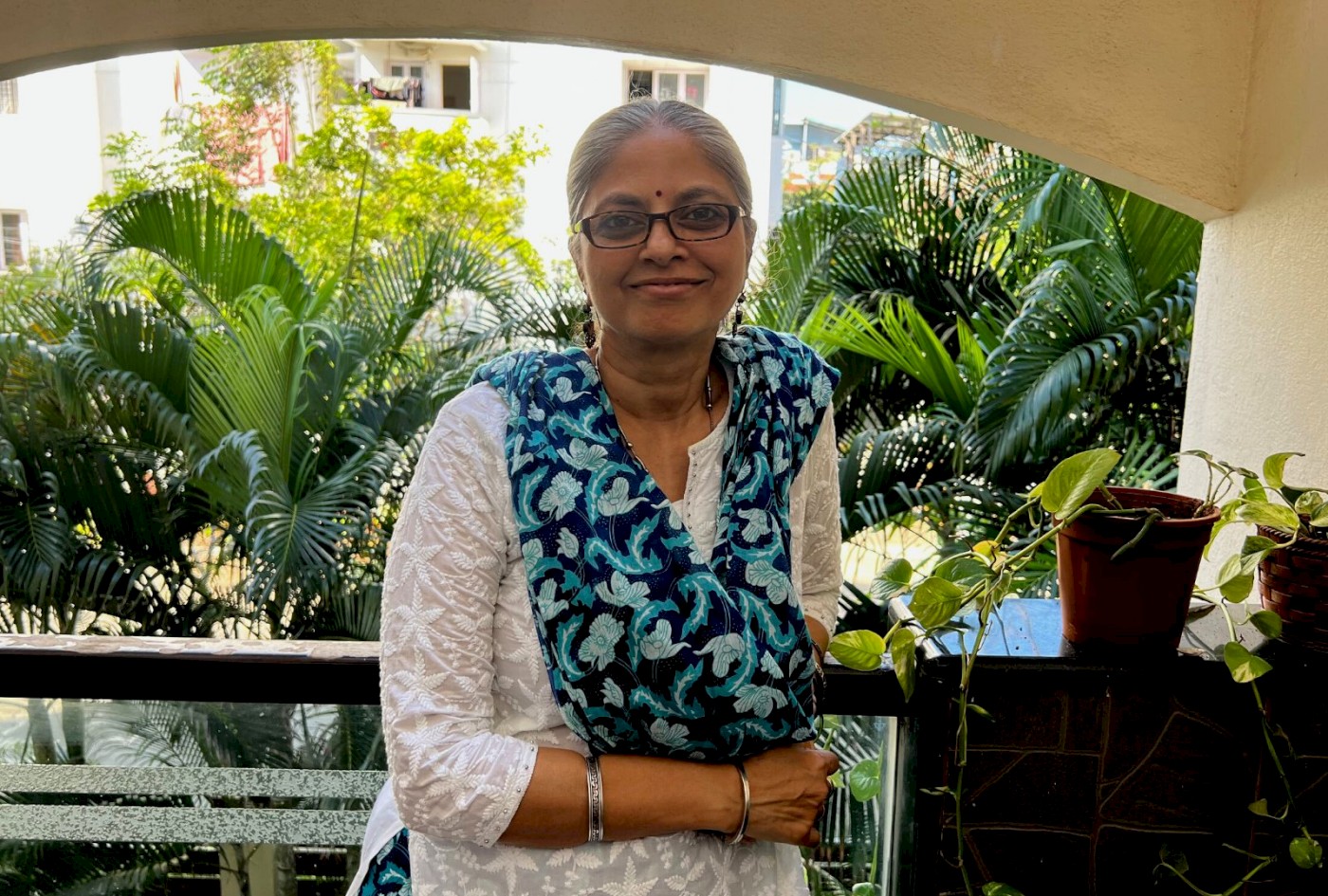
Padmaja Anant, enrolled in Ahmedabad University's Diploma in Literary Translation programme, won the 2022 Mozhi Prize, a prestigious literary award given to short fiction translated from Tamil into English. Senior Vice-President, Publishing (Humanities) at Orient BlackSwan, Padmaja translated Chandra Thangaraj's A House Without Cats. She is interested in translating works from Tamil and Hindi into English, across a variety of genres.
Chennai-based Padmaja was enrolled in the Postgraduate Diploma in Literary Translation programme offered at the Centre for Learning Futures when she decided on her maiden attempt at translating a Tamil work into English. She says, "I am the kind of person who likes to prepare before I take up something. I wanted to understand the field of translation: its history, how different people have approached it, what the challenges are. The fact that a translated work is a space for shared ideas and visions, excites me. But most importantly, I think it was important for me to move from the comfort of reading (and judging) to putting myself out there, to be judged! I wanted to equip myself, give myself the best start I could. The course has done that for me."
Even though she brings years of editorial experience having been part of a publishing house, at work she deals with academic material, not literary texts. Though she reads widely, her exposure to fiction writing in Tamil is limited, since much of her reading happens in English. Recounting how she got interested in translations, she says, "I’m part of a book club Bibliothek, which was originally part of IIT Alumni Club, Chennai. Every year we would identify a theme and read around it. A few years ago, we realised that while we read a lot of fiction originally written in English, we weren't reading enough translated works, especially from India. Being the publisher in the group, I was asked to curate a list. The list turned out to be long and many of us got a chance to read and discuss writers like Pratibha Ray (writing in Odia), Phanishwarnath Renu (writing in Hindi), Bama (writing in Tamil), MT Vasudevan Nair (writing in Malayalam) and other big names in Indian literature. Thereafter, I started reading translations not only from various parts of India but also from Albania, Egypt, Hungary and Iceland." She is deeply appreciative of the platform that Mozhi provides. “Run by Suchitra Ramachandran and Priyamvada Ramkumar, Mozhi provides the space for translators to interact with each other. Writers need these spaces to connect, collaborate, share resources, ask for feedback: this is a very encouraging online space for translators. I hope it will grow with time."
For the Mozhi Prize 2022, Padmaja initially wanted to translate Kalki Krishnamurthy's work into English. It was only when she realised that Mozhi wanted recent works in translation, published after 1972, that she looked for something else and was attracted to the story of a young boy and his family, and a cat who 'adopts' them. "It was a simple story, but it stayed with me for several days. It captured a boy’s journey from childhood to adolescence to adulthood with nostalgia but not sentimentality," she adds.
The Literary Translation programme at Ahmedabad University played a significant role in her understanding of how one approaches translations. "One of the best things about the course was the chance to listen to renowned and respected translators, including Shanta Gokhale, Tridip Suhrud, Rita Kothari, Daisy Rockwell and Jerry Pinto, speak about how they viewed and approached translation. Where else would we get an opportunity like that? Besides, the lectures and the practice sessions were very well planned. Professors Tejaswini Niranjana and Ashwin Kumar crafted their sessions to maximise the learnings from each session. We were given a rigorous grounding in theory as well," she says.
Padmaja enjoys the challenges that translation work offers. Finding answers to these is a part of learning in the journey she has just begun. "Dialect, for instance. When we translate from Indian languages into English there is inevitably a flattening out of dialect. It is difficult to capture it in English without making it sound artificial. The translator has to work out ways to give voices to different characters without using dialect, which can also be a marker of class and caste in the original text. The other challenge is familiarity with the cultural context of the writer and the story. For instance, if I want to translate the works of Phanishwarnath Renu, a literary giant of Hindi literature, but I am not clued into the region of Bihar he writes about, its culture or literary references, that would be a significant disadvantage. It may not always be possible for the translator to immerse herself in the context of the writer, or travel to the places written about, etc. But if one could do so, it would immeasurably benefit the translation." Padmaja is now translating stories from Hindi by Chitra Mudgal and Mudrarakshas, and from Tamil by contemporary writers like Chandra, as well as Kalki’s short stories.